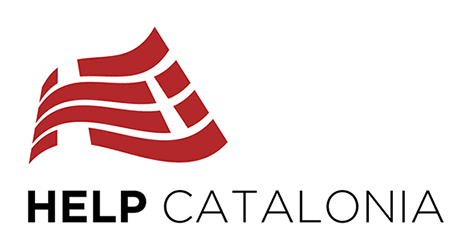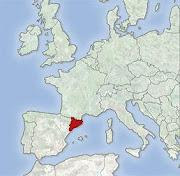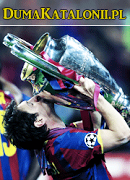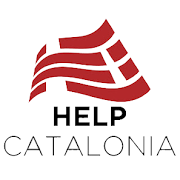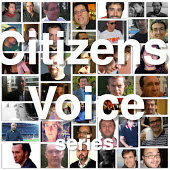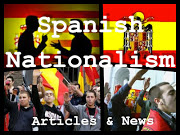Barcelona (ACN).- On the 8th of June, thousands of Catalans will simultaneously build the traditional human towers – called castells – in picturesque locations in Berlin, Brussels, Geneva, Lisbon, London, Paris and Barcelona, carrying a banner reading "Catalans want to vote". The action is a festive demonstration to raise international awareness about the aspiration shared by more than 75% of the Catalan population: to be able to hold a self-determination vote to decide on Catalonia's future and possible independence from Spain. The project 'Catalans want to vote – Human towers for democracy' is a private initiative organised by the civil society organisation Òmnium Cultural, an entity that does not receive any money from the Catalan Government. In fact, this Tuesday it was announced that the project has reached its initial objective of raising 120,000 euros through Verkami's crowd-funding web site. The money will be used to pay for part of the trip costs of the thousands of castellers, the name given to those building the human towers (called castells), which were declared World Heritage by UNESCO in 2010. However, the crowd-funding platform will still be receiving donations for the coming 11 days and a greater amount is to be expected.
The tradition of building human towers
The tradition of creating the human castles began around 200 years ago in the Tarragona Province, in southern Catalonia. The towers are created by amateur groups and are formed by the castellers standing on the shoulders of each other. They normally take place during local festivals in Catalan towns and cities and tend to involve between 6 and 10 levels of people, literally standing on top of each other and reaching the size of a 3-, 4- or 5- storey building. Depending on the tower's shape and complexity, there are between 1 and 9 people per layer, although at ground level a wide base is formed, which in some constructions secondary and smaller bases are also formed in the first two levels.
In 2010 the tradition was declared a UNESCO element of Intangible Cultural Heritage of Humanity. It was awarded the honour because of the values of collective self-improvement and solidarity that it promotes, as well its ability to integrate people of all ages and walks of life into the same project.
A civil society initiative
"Internationalising Catalans' right to decide" on their own political collective future. This is the objective set by the action's organising association, Òmnium Cultural, which started its activities promoting Catalan culture and language in 1961, as part of the democratic fight against Franco's Military and Spanish Nationalist dictatorship (which officially ended in 1977).
The initiative is part of the activities to pave the road towards the 9th of November, the day agreed upon by a majority of Catalan parties to hold a self-determination vote. The agreement reached follows the democratic mandate issuing from the last Catalan elections, when some 80% of the votes were for parties supporting Catalonia's right to self-determination and proposing the organisation of a legal referendum in their electoral manifestos. It follows from this that the Catalan Parliament and the resulting Government have the people's mandate to organise such a vote.
The Spanish establishment is blocking Catalans' right to self-determination
However, the Spanish Government vetoes it totally and refuses to even talk about it. Madrid's no-to-everything attitude aims to stop the self-determination process, but a majority of Catalan parties, several civil society organisations and a significant section of Catalan society have been insisting that they want to vote and have proposed several legal ways to make such a vote possible. Despite these efforts, the Spanish Prime Minister, Mariano Rajoy, using a centralist and Spanish nationalist interpretation of the current legal framework is pursuing an obstructionist attitude to block such a vote.
After numerous negative answers from the Spanish Government and with several legal ways to organise the vote blocked by Rajoy's lack of political will, a majority of Catalan parties agreed not to wait eternally for the Madrid establishment to change its mind and decided to set a date and an exact question wording to follow the Catalan citizens' electoral mandate and allow them to vote on their independence from Spain.
A clear and absolute majority of Catalans want to vote
More than 75% of Catalans want to vote, regardless of whether they would vote for independence or against it, according to many polls. In addition, although there are no clear figures about how many Catalans would vote for independence, polls indicate support varying between 43% and 60%, while the same polls indicate that those voting against it would represent between 38% and 22%. In fact, probably because independence is the most popular option in all the polls – although in some of them it does not reach 50% of the population – the Spanish Government is not allowing the vote and is threatening Catalans with an apocalyptic future if they eventually leave Spain.
Spain's obstructive attitude will not stop Catalonia's self-determination process
In order to heed the demands of a majority of Catalonia's citizens, Catalan political parties have decided to make all the necessary arrangements to be able to organise a self-determination vote. Since the Spanish Government is blocking the use of Spanish-level legislation, Barcelona-based parties have decided to develop Catalonia's own legal framework, following its legislating powers recognised in the Statute of Autonomy of 2006. This means approving its Consultation Vote Law, a piece of legislation already provided in the aforementioned Statute of 2006.
In addition, they will also use International Law. For this reason Catalan authorities are seeking support at international level, or at least to convince foreign actors not to oppose Catalonia's self-determination process. In this strategy, convincing European Union institutions and EU Governments has paramount importance.
Some international supporters
The third and fourth largest political families in Europe have already backed Catalonia's right to self-determination. Both the Liberals and the Greens announced they would work to allow Catalans to vote on their future. In addition, the Prime Ministers of Latvia and Lithuania partially backed Catalonia's voting demands, but they were forced to modify their stance after loud protests and pressure from the Spanish Foreign Affairs Ministry. In addition, several European intellectuals have publicly supported Catalonia's right to vote on its political future and they have also backed its EU membership in the event of independence.
Since Catalonia's self-determination process is a grass-roots movement, primarily fuelled by civil society organisations and not by political leaders, such organisations also wanted to participate at this crucial moment. Civil society was behind the two massive pro-independence demonstrations of 2012 and 2013, which were the largest demonstrations ever organised in Catalonia, with 1.5 and more than 1.6 million respectively.
Raising international awareness: "Catalans want to vote"
Now, before this year's massive demonstration, which will take place as always on Catalonia's National Day (11th September), Òmnium Cultural wanted to organise a symbolic demonstration in some of the main European cities. The objective is clear and transparent: "internationalise Catalonia's right to decide" on its own future. In other words, raise international awareness of Catalonia's intention to hold a self-determination vote.
The 'Catalans want to vote – Human towers for democracy' campaign was announced around a month ago by this civil society entity. In 29 days it managed to raise more than 120,000 euros to pay for the travelling costs of the participants: the groups of castellers who will build towers in Berlin, Brussels, Geneva, Lisbon, London and Paris, but also in Barcelona and other Catalan cities and town. 36 castellers group have already confirmed their participation, including some of the best. The castells will be built at the exact same time, at 12 pm, and they will show a banner reading "Catalans want to vote". By this action, Òmnium Cultural uses a distinctive feature of Catalan folk culture and makes a festive, peaceful and positive demonstration, in line with, for instance, the 400 km-long human chain that spanned Catalonia from north to south gathering more than 1.6 million people in last 11th September.
